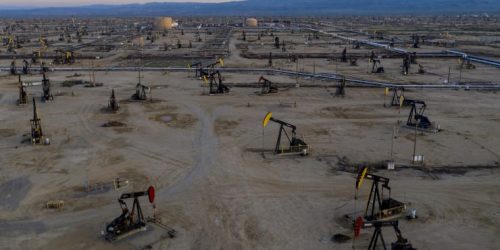Oil prices edged up on Monday as global equities rallied on hopes for another U.S. stimulus package, but rising virus cases fed concerns about fuel demand and kept oil futures from moving higher.
Brent crude settled 51 cents, or 1.22%, higher at $42.43 per barrel. West Texas Intermediate settled 35 cents, or 0.9%, higher at $40.60 per barrel.
“There is some renewed hopes that the Democrats and the Republicans can get a relief bill put together and that seems to be raising expectations that the (oil) demand outlook is going to be a little bit better with the economy,” said Phil Flynn, senior analyst at Price Futures Group in Chicago.
Oil followed Wall Street higher as American political talks continued for another COVID-19 relief bill after U.S. House Speaker Nancy Pelosi on Sunday said she thought a deal could be reached with the White House.
Still, the global health crisis, which has slashed global fuel consumption, kept oil prices from moving much higher.
“The speed with which the virus is spreading is the main concern for both health officials and financial investors,” said PVM analyst Tamas Varga.
Some Midwest U.S. states have seen a 25% jump in positive COVID-19 test rates, and the number of new infections nationwide has grown to 46,000 on average each day compared with 35,000 daily two weeks ago.
Russian Energy Minister Alexander Novak said the global oil market had been stable for the past few months, but warned of the risks of a second wave of COVID-19 cases.
Despite efforts by the Organization of the Petroleum Exporting Countries and its allies to limit output, more crude is being exported from OPEC producers Iran and Libya.
OPEC Secretary General Mohammad Barkindo said on Sunday that commercial oil inventories in OECD countries are expected to stand only slightly above the five-year average in the first quarter of 2021, before falling below that level for the rest of the year.
Meanwhile, one of the heaviest clashes between Armenia and Azerbaijan since 2016 broke out over the weekend, reigniting concern about stability in the South Caucasus, a corridor for pipelines carrying oil and gas to world markets.





